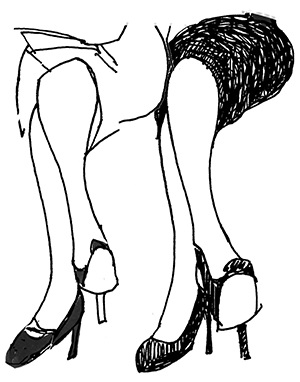Move over
December 3, 2014
New technology has always been forcing us to change. Here is a priceless vignette by Doris Lessing about the introduction of the television set to the row houses of post-war London.
[I]t was the summer of 1950. Before I left Denbigh Road I saw the end of an era, the death of a culture: television arrived. Before, when the men came back from work, the tea was already on the table, a fire was roaring, the radio emitted words or music softly in a corner, they washed and sat down at their places, with the woman, the child, and whoever else in the house could be inveigled downstairs. Food began emerging from the oven, dish after dish, tea was brewed, beer appeared, off went the jerseys or jackets, the men sat in their shirtsleeves, glistening with well-being. They all talked, they sang, they told what had happened in their day, they talked dirty — a ritual; they quarrelled, they shouted, they kissed and made up and went to bed at twelve or one, after six or so hours of energetic conviviality. I suppose that this level of emotional intensity was not unusual in the households of Britain: I was witnessing an extreme. And then, from one day to the next — but literally from one evening to the next — came the end of good times, for television had arrived and sat like a toad in the corner of the kitchen. Soon the big kitchen table had been pushed along the wall, chairs were installed in a semi-circle, and on the chair arms, the swivelling supper trays. It was the end of an exuberant verbal culture.
Walking the Shade 1949-1962, pp. 17-18
It makes me want to write a paragraph about Netflix, “The Before and After” …



























Leave a Reply